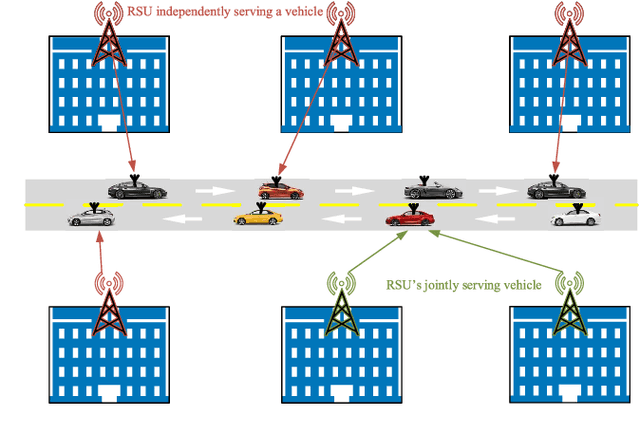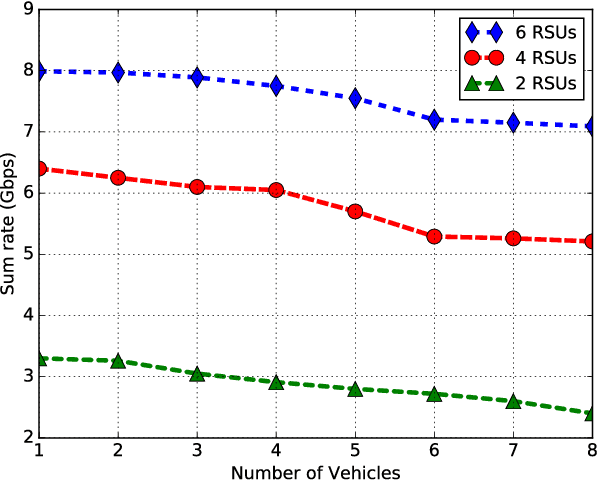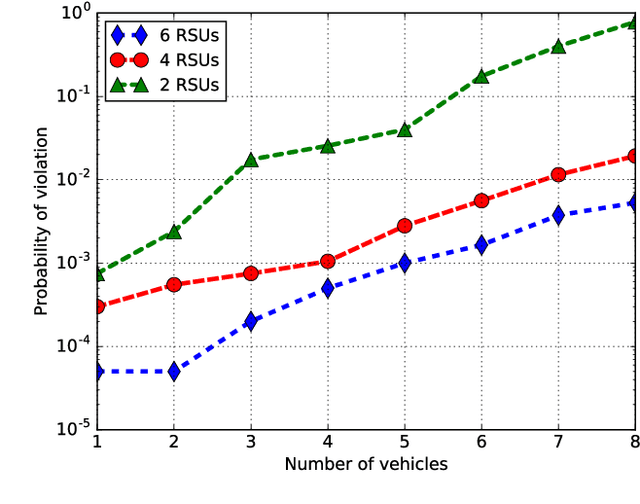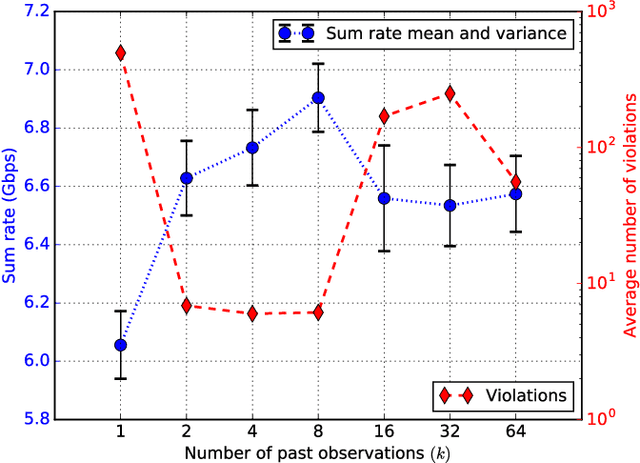Reinforcement Learning Based Vehicle-cell Association Algorithm for Highly Mobile Millimeter Wave Communication
Paper and Code
Jan 22, 2020



Vehicle-to-everything (V2X) communication is a growing area of communication with a variety of use cases. This paper investigates the problem of vehicle-cell association in millimeter wave (mmWave) communication networks. The aim is to maximize the time average rate per vehicular user (VUE) while ensuring a target minimum rate for all VUEs with low signaling overhead. We first formulate the user (vehicle) association problem as a discrete non-convex optimization problem. Then, by leveraging tools from machine learning, specifically distributed deep reinforcement learning (DDRL) and the asynchronous actor critic algorithm (A3C), we propose a low complexity algorithm that approximates the solution of the proposed optimization problem. The proposed DDRL-based algorithm endows every road side unit (RSU) with a local RL agent that selects a local action based on the observed input state. Actions of different RSUs are forwarded to a central entity, that computes a global reward which is then fed back to RSUs. It is shown that each independently trained RL performs the vehicle-RSU association action with low control overhead and less computational complexity compared to running an online complex algorithm to solve the non-convex optimization problem. Finally, simulation results show that the proposed solution achieves up to 15\% gains in terms of sum rate and 20\% reduction in VUE outages compared to several baseline designs.
 Add to Chrome
Add to Chrome Add to Firefox
Add to Firefox Add to Edge
Add to Edge